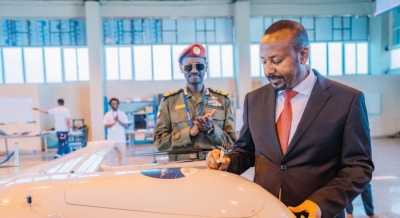The United States has just unveiled its annual report on human trafficking worldwide, highlighting both successes and failures globally and emphasizing the role of technology.
Almost the same "bad performers" are once again highlighted in the dark section of the US State Department's report on human trafficking. Examples include South Africa and Algeria, countries that have already been urged by the authors of the same report to redouble their efforts to combat this scourge, to no avail.
The annual American report establishes its list based on the observed efforts, or lack thereof, to combat human trafficking. Countries that do not make sufficient efforts may face sanctions or a withdrawal of American aid.
Another extreme example is Sudan. Plunged into a devastating war for a year between the army and paramilitary forces, this country is also highlighted. "We have observed trafficking by the Sudanese government concerning the recruitment of child soldiers," notes Cindy Dyer, the diplomat in charge of this issue at the State Department.
Additionally, thirteen countries accused of directly engaging in human trafficking are on the blacklist: Afghanistan, Belarus, Burma, China, Cuba, Eritrea, North Korea, Iran, Russia, South Sudan, Sudan, Syria, and Turkmenistan.
Traffickers More Connected Than Ever
The 2024 edition of the report places particular emphasis on "the growing role of digital technology in human trafficking," as highlighted by US Secretary of State Antony Blinken. Traffickers increasingly use social media, dating apps, and gaming platforms to target and recruit victims. The use of opaque cryptocurrency transactions has also been noted.
Antony Blinken mentioned cases where traffickers lure people with fake job offers, transporting them, for example, to Burma, where they find themselves without freedom of movement.
According to the International Labour Organization (ILO), about 27 million people worldwide are victims of human trafficking, an illegal trade that generates approximately $236 billion in annual revenue.
While the report highlights the shortcomings of certain countries, it urges directly or indirectly affected countries to make greater efforts to counter traffickers. In this context, digital technologies can be used to strengthen protection and prevention measures if they are well regulated and monitored.











